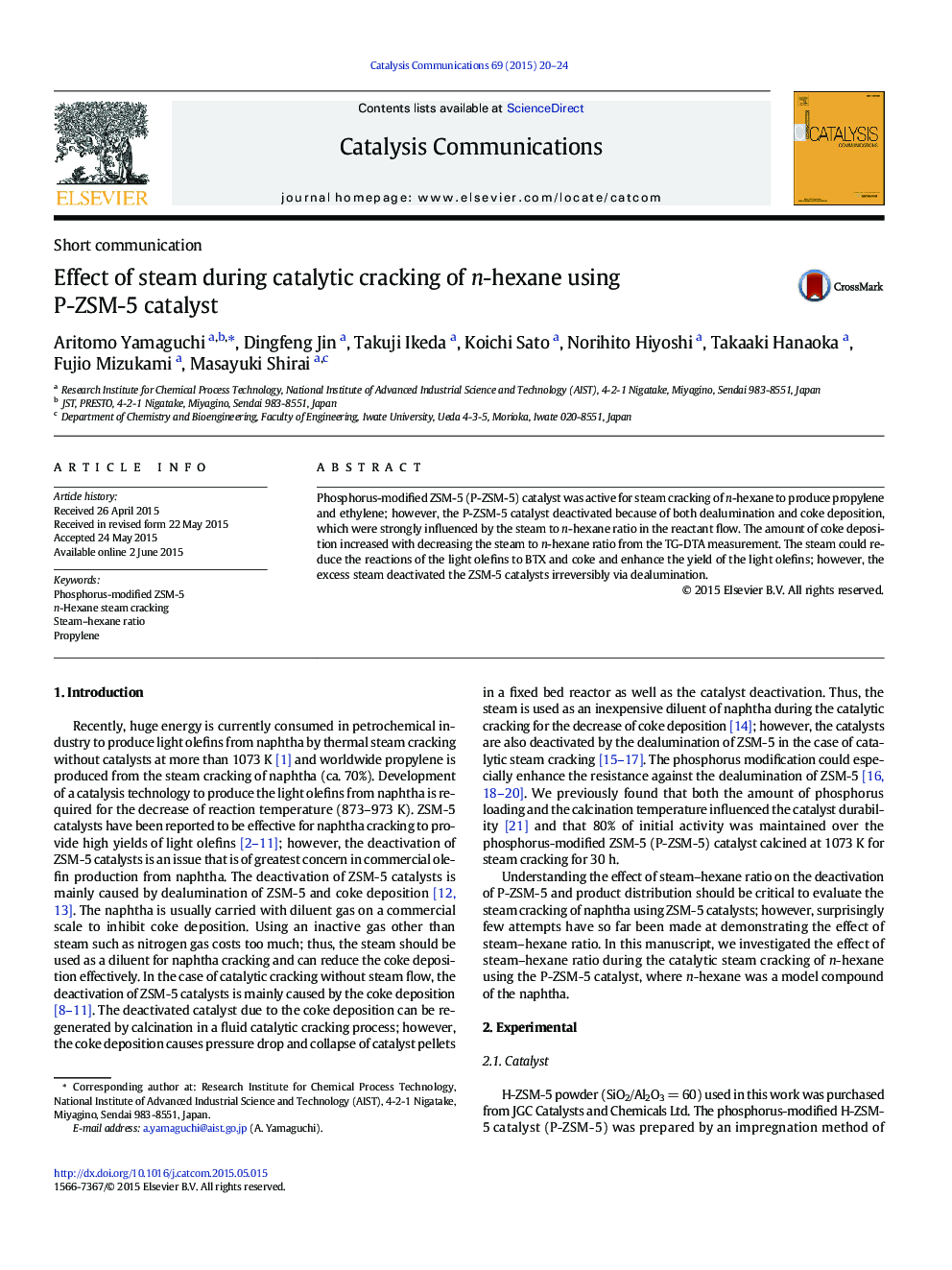| Article ID | Journal | Published Year | Pages | File Type |
|---|---|---|---|---|
| 49343 | Catalysis Communications | 2015 | 5 Pages |
•The catalyst deactivated because of both dealumination and coke deposition.•The deactivation reasons were influenced by the steam to n-hexane ratio.•The amount of coke deposition increased with decreasing steam to n-hexane ratio.•The excess steam deactivated the ZSM-5 catalysts irreversibly via dealumination.
Phosphorus-modified ZSM-5 (P-ZSM-5) catalyst was active for steam cracking of n-hexane to produce propylene and ethylene; however, the P-ZSM-5 catalyst deactivated because of both dealumination and coke deposition, which were strongly influenced by the steam to n-hexane ratio in the reactant flow. The amount of coke deposition increased with decreasing the steam to n-hexane ratio from the TG-DTA measurement. The steam could reduce the reactions of the light olefins to BTX and coke and enhance the yield of the light olefins; however, the excess steam deactivated the ZSM-5 catalysts irreversibly via dealumination.
Graphical abstractThe P-ZSM-5 catalyst deactivated because of both dealumination and coke deposition, which were strongly influenced by the steam to n-hexane ratio in the reactant flow.Figure optionsDownload full-size imageDownload as PowerPoint slide
